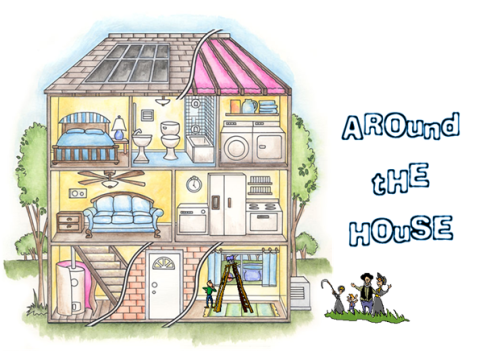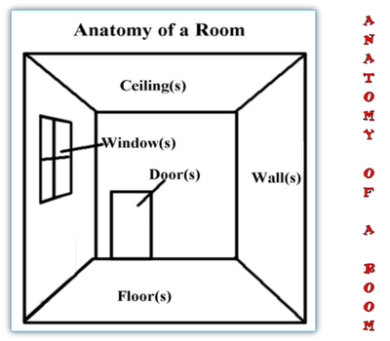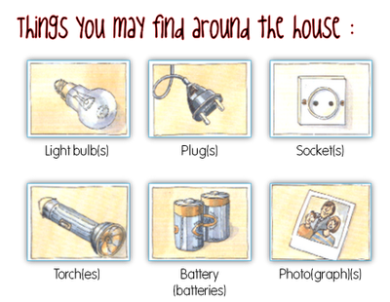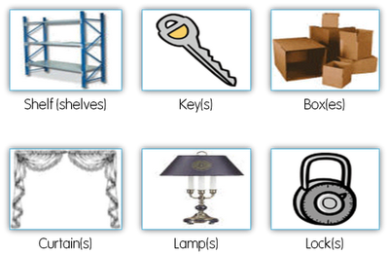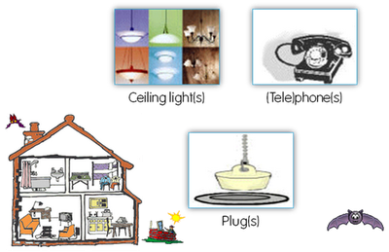Simple future is used for describing job or action that will to do (happened) at future.
Example :
1. Tomorrow
Note : “shall” just can use for subject “I and We”
Note : Shall not = shan’t
Formal expressions :
Ø I wonder if you remember…..
Ø You remember…., don’t you?
Ø You haven’t forgotten…., have you?
Ø Don’t you remember…..?
Ø Do you happen to remember it now?
Ways to respond :
Ø Let me think, yes, I remember.
Ø I remember especially the scenery.
Ø I’ll never forget that
Ø I’ll always remember.
Ø I can remember it clearly.
Informal expressions :
Ø Remember the old house we used to live in?
Ø Remember that?
Ø I’m sorry I don’t remember
Ways to respond :
Ø Hold on. Yes, got it!
Ø I know…..
Ø It’s coming back to me now.
Respond if you forget :
Ø Sorry, I’ve completely forgotten.
Ø I’m affraid I forget.
Ø I really can’t remember.
Ø I’m afraid I have no memory of him
Ø Errr, let me think. No, it’s gone.
Ø Sorry, it slipped off my mind.
Example :
It was Sunday morning, Irun got dressed and had breakfast quickly. She was ready to leave for school. Her father was a little puzzled.
Father : Hey…hey…. are you going to school?
Irun : Yes, Father. I overslept. I’m in a hurry
Father : You remember Sunday, don’t you?
Irun : Oh, my goodnes. I thought it’s a school day !
Definition of house :
As Nouns
Ø A dwelling that serves as living quarters for one or more families.
Ø The members of a business organization that owns or operates one or more
establishments.
Ø The members of a religious community living together.
Ø The audience gathered together in a theatre or cinema.
Ø An official assembly having legislative powers.
Ø Aristocratic family line.
Ø Play in which children take the roles of father or other or children and pretend to interact like adults.
(astrology) one of 12 equal areas into which the zodiac is divided:
Ø The management of a gambling house or casino
Ø A social unit living together
Ø A building where theatrical performances or motion-picture shows can be presented
Ø A building in which something is sheltered or located
as Verbs
Ø Contain or cover
Ø Provide housing for
Many place around the house :
Library : A room where books are kept.
Lounge : Another name for living room.
Music Room : A room where people play music.
Office : A room where people work.
Pantry : A small room used to store kitchen and dining items.
Parlour : Old fashioned word for living room.
Sitting Room : Another name for living room.
Spare Room/
Guest Room : A room where guests sleep.
Attic : People store things in the attic.
Ballroom : A room in stately homes where rich people dance and concerts are
held.
Box Room : A small room used for storage.
Cellar : Underneath the house.
Cloakroom : A small room where people put their coats.
Conservatory : A greenhouse attached to a house for the display of plants.
Dining Room : A room where people eat (see eating at home).
Hall : The entrance passage to a house.
Drawing Room : A room in stately homes where rich people entertain.
Games Room : A room in large houses where games are played.
Larder : A small room used for the storage of food.
Toilet : A room where people go to the toilet (often known as WC).
Utility Room : A room where appliances such as washing machines are used.
There are a number of formulas used when asking for information in English. Here are some of the most common:
ü Could you tell me…?
ü Do you know…?
ü Do you happen to know…?
ü I’d like to know…
ü Could you find out…?
ü I’m interested in…
ü I’m looking for…
These two forms are used for asking for information on the telephone :
Ø I’m calling to find out…
Ø I’m calling about…
Information about company :
What does your company do?
What is your specialty?
What do you specialize in?
What is your main line of business?
We produce marketing materials.
We specialize in art and design.
What are your major products?
What services do you provide?
We produce office machines.
We design software.
We provide technical support
Information about Price What are you asking for this?
What does this sell for?
How much is it?
How much does it run?
This (one) sells for $6000.
This one goes for $2000.
This one is priced at $8995.
Definition
The making available of a new securities issue to the public through an underwriting. also called public offering.
Ways to say it :
Would you like a cup of tea, Mr malik?
Should I get you a bottle of water?
Could I offer you a glass of milk, Mr. gery?
Would you care some candy?
In the following dialogue is given some examples of expressions when we are going to offer something to someone else.
A : Would you like some cake?
B : No thank you. It looks delicious though
A : How about a glass of coffee?
B : Thanks, but I don’t drink coffee.
A : What will you have (to drink)?
B : Manggo juice will be fine.
A : Would you like some more pie?
B : Sure. It’s really good. Did you bake it yourself?
A : Can I get you some milk or something?
B : Well, a glass of water would be okay.
A : Would you like some cake?
B : No thank you. It looks delicious though.
A : How about a glass of wine?
B : Thanks, but I don’t drink (alcohol).
A : What will you have (to drink)?
B : Orange juice will be fine.
A : Would you like some more cake?
B : Sure. It’s really good. Did you bake it yourself ?
A : Can I get you some milk or something?
B : Well, a glass of water would be okay.
A finite verb is a verb that is inflected for person and for tense according to the rules and categories of the languages in which it occurs. Finite verbs can form independent clauses, which can stand by their own as complete sentences.
Every grammatically correct sentence or clause must contain a finite verb; sentence fragments not containing finite verbs are described as phrases.
Some interjections can play the same role. Even in English, a sentence like Thanks for your help! has an interjection where it could have a subject and a finite verb form (compare I appreciate your help!).
In English, as in most related languages, only verbs in certain moods are finite. These include :
Ø The indicative mood (expressing a state of affairs); e.g., “The bulldozer demolished the restaurant,” “The leaves were yellow and stiff.”
Ø The imperative mood (giving a command).
Ø The subjunctive mood (expressing something that might or might not be the state of affairs, depending on some other part of the sentence); nearly extinct in English.
A verb is a word that expresses an occurrence, act, or mode of being. Finite verbs, sometimes called main verbs, are limited by time (see tense), person, and number.
The finite verbs are highlighted in the following sentences :
Ø The bear caught a salmon in the stream.
Ø Who ate the pie?
Ø Stop!
A nonfinite verb form – such as a participle, infinitive, or gerund – is not limited by by time (see tense), person, and number.
Verb forms that are not finite include :
Ø The infinitive
Ø Participles (e.g., “The broken window…”, “The wheezing gentleman…”)
Ø Gerunds and gerundives
In linguistics, a non-finite verb (or a verbal) is a verb form that is not limited by a subject; and more generally, it is not fully inflected by categories that are marked inflectionally in language, such as tense, aspect, mood, number, gender, and person. As a result, a non-finite verb cannot generally serve as the main verb in an independent clause; rather, it heads a non-finite clause.
By some accounts, a non-finite verb acts simultaneously as a verb and as another part of speech; it can take adverbs and certain kinds of verb arguments, producing a verbal phrase (i.e., non-finite clause), and this phrase then plays a different role — usually noun, adjective, or adverb — in a greater clause. This is the reason for the term verbal; non-finite verbs have traditionally been classified as verbal nouns, verbal adjectives, or verbal adverbs.
English has three kinds of verbals: participles, which function as adjectives; gerunds, which function as nouns; and infinitives, which have noun-like, adjective-like, and adverb-like functions. Each of these is also used in various common constructs; for example, the past participle is used in forming the perfect aspect (to have done).
Other kinds of verbals, such as supines and gerundives, exist in other languages.
Example:
The Crow and the Fox
One day a crow finds a tasty piece of cheese. She picks it up, flaps her wings, and flies to a high branch of a tree to eat it.
Descriptive text is available for a screen reader device to audibly describe a graph or map so a visually impaired user can understand the graphical information . Or to describe the characteristic of particular Person, thing , or place .
The function of a descriptive text is to describe a particular person,place,or thing.
The purpose of description text is do describe thing or object by word
Ø Structure of text :
Identification : Identifies thing, person, place, phenomenon to be described.
Description : Gives the information of particular thing, person, or place
being discussed or describes parts, qualities, or characteristic.
Ø Language figures :
a. Topic is usually about the attributes of a think.
b. The use of think person pronoun forms is used.
c. The use of focus specific human and non human participants.
d. The use of reasoning expressed as verbs or noun.
e. The use of material.
f. The use of relation and mental process.
Ø Characteristic :
a. Use the simple present tense.
b. Using detailed noun phrases to provide information on the subject.
c. Uses relating verbs to provide information on the subject.
d. Use the thinking and feeling verbs to reveal personal views about the subject author.
e. Use action verbs.
f. Use adverbials to provide additional information.
g. Use figurative language such as simile, metaphor.
Ø Grammatical features :
ü Who? What?
ü Using linking verb and simple present tense,
ü Epithet: adjective or adjective phrase,
ü Attributive (the)
ü Use a attributive and identifying process,
ü Focus an specific participants,
ü Frequent use of epithets and classified in nominal groups
|
Identification |
Descrivtive text
|
Pingpellir is a very famous historic place in Iceland,where a lot of thing have happened which have influenced the Iceland history. |
|
Pingvellir was reserved in 1928 and became a national park.now there is a fence all around Pingpellir to protect it from sheep and other animals which can destroy the vegetation. Pingvallavatn,which is in Pingvellir,is the largest lake in Iceland.it is 83.7 square km and 114 meters deep.there are many kinds of fish in the lake,like trouts,charrs and tiddlers. Pingvellir is also a very famous tourism place,and thousands og people come there every year to see this smashing nature and its beautiful surroundings. Men have tried to do anything they can to protect this old,famous place.they have put fence all around Pingvellir and there are special rules.they have also made many path and you are only allowed to camp on special places,to protet the vegetation.they have rebuilt the houses and many things for the travel industry. |
|
Description |
Direct speech :
- Discussion which it’svoice is direct listen from one who converse…
Indirect speech :
- Discussion which it’s voise is indirectly listened from one who converse but submitted to others with litterance which is not simllor but,same purpose and objectives…
Example :
Direct speech : Vita said “ I am tired “
Indirect speech : Vita said that she was tired
Direct speech : Mr.Chandra said “ I go to the office “
Indirect speech : Mr.Chandra sait that he went to the office
- If the main verbs of the sentence is in the past ( e.g said ),the verb in the noun clause is usually also in a past form.notice the verbs form changes in the examples below.
|
Direct Speech |
Indirect Speech |
|
|
- If the main verb of the sentence is in the present ( e.g says ),no change is made in the verb tense or modal in the noun clause
|
Direct Speech |
Indirect Speech |
|
|
- When you change a direct speech into the indirect form,you also change the adverb of time.
|
Direct |
Indirect |
|
– Now – Today – Tomorrow – Next… – Last… – …ago – Yesterday – The day before yesterday – Here – This – These
|
– Then – That day – The next day,the day after – The…after,the following… – The…before,the previous – …before – The day before – Two days before – There – That – Those
|
There are three kinds of indirect speech :
- Command/request
Example :
-Help me please
-Zera asked derby to help her
2. Question
Example :
-Vera asked,”are you a journalist?”
-Vera asked if / weather.i was a journalist.
3. Statement
Example :
-I’m reading a Harry Potter novel
-Keila said that she was reading a Harry Potter novel
The other class of a auxiliaries is made up the ones in the illustration.they function only as auxiliaries some of them do function as the past tense from of some of the others.may changes to might,will to would,can changes to could,and shall changes to should.
Modals in the past form
|
Modals |
||
|
Present |
Past |
|
|
Can |
Could |
|
|
Will |
Would |
|
|
Shall |
Should |
|
|
May |
Might |
|
- – Can
- To express ability
- Example : My youngest sister can sing a slassic song beautifully
She is able to dance gracefully
- Permission/request
Example : Can I go home know? (permission)
Can you give me some water (request)
- Possibility
Example : One of the prisoners escaped last night.he can be anywhere now
- Request
Example : Can you help me,tom?
- Could
- To express ability to do something
Example : I could speak English
- To express ability,subject to certain conditions which probably do not exist.
Example : I could go now,if I wanted to (I don’t want to)
When I was sixteen,I could dance all night (if circumstanted permitted)
- To express polite question.
Example : Could I go to the cinema,please?
- To express polite request.
Example : Could you wait a moment,please?
Could I borrow your pencil,please?
Could you please close the door?
- To express polite offer.
Example : I could lend my car till tomorrow
- To express pplite suggestion.
Example : Could we visit grandma at the weekend
- To express possibility.
Example : It could get very hot in Montana
2.Will
- Something done in the present or the future
Example : Mr. Smith will arrive tomorrow
I will be there next week
- To express request
Example : Will you open the door,please?
- To express a invitation
Example : Will you go to the movie with me tonight
3.Would
- To express wish,request.(more polite then will)
Example : Would you shut the door ?
Would you please past the helmet,Bella?
- To express habits in the past
Examples : Sometimes he would bring me some flowers
When I was young,my grandfather would tell me stories
- Insert rather into the pattern and use this expression to express preferences :
Examples : I would rather go to the party than stay home
I would rather visit italia than Somalia
4.Shall
- To express what will happen in the future
Example : I shall leave tomorrow morning
- Express offer,suggestion,or request for advice
Example : Shall I open the window (offer)
We have waked so far.shall we take a rest here? (suggestion)
Now that the semester is finished,what shall we do? (request for advice)
5.Should
- To give definite advice (advisability)
Examples : You should drive carefully in bad weather
You should paint your door,Booby it looks terrible
- To express the subject’s obligation or duty
Examples : You should switch off the light when you leave the room
You should practice for more than an hour
They sholdn’t allow parking here,the street is too narrow
6.May
- To Express possibility
Example : The train may arrive late
- To express wishes and hopes
Example : May God bless you!
May you both be happy
7.Might
- To tell possibilities
Examples : It might rain today
I might accompany you,but it does not appear very likely
He might be in thestudio with Tita
- To express polite request
Example :Might I borrow your coat ?
- To express hesitant offer
Example : Might I help you ?
8.Ought to
- To express advice
Example : You ought to see the doctor,Riska.
- To express obligation
Example : Drives ought to drive their cars vary carefully
9.Used to
- To express habits in the past
Example : When I was child,I used to swim in this river every afternoon
A noun phrase comprises a noun (obviously) as the head of the phrase and any associated modifiers.
ü The long and winding road
ü A noun phrase
ü Any associated modifiers
(*note all of the underlined words in the sentences above are the head of each phrase)
- The bold phrase in the sentences above are called noun phrases.A noun phrases can consist of :
- Noun and Noun
Example : Punk legend,semi-rock band
- Adjectives and Noun
Example : Beautiful girl,medical center
- Noun and Adverbial
Example : A girl from his hometown
The modifiers that accompany a noun can take any number of forms and combinations of forms:
- Determiners in English,determiners are usually placed before the noun
-Articles :
“the car” “a boy” “an apple”
-Demonstratives :
“this pen” “that book” “those people”
-Numerals :
“two fish” “five bags” “twenty plates”
-Possessives :
“my school” “their house” “its tail”
-Quantifiers :
“some sugar” “many flowers” “much money”
- An adjectives,of course :
“the tall and brilliant professor”
- A participial phrase :
“the road following the edge of the frozen lake”
- An infinitive phrase :
“the first man to walk on the moon”
- A modifying clause :
“the presentation that he had mad the day before”
- A prepositional phrase :
“the building next to the ladge,over by the highway”
Usually,a noun phrase will be all of a piece,all the words that compose it being contiguous with the noun itself.it is possible,however,for a noun phrase to be broken,to become what we all discontinuous.sometimes part of the noun phrase is delayed until the end of the sentence so that portion of the phrase (usually modifying phrases – participal or prepositional) can receive end weight or focus.
Example :
Several accidents have been reported involving passengers falling from trains
We could have put the entire noun phrase together :
“several accident involving passengers falling from trains have been reporter recently”
Shifting the modifying phrases of the italic part of the phrase to the end and puts additional emphasis on that part.here are some other examples :
- A rumor circulated among the staff that he was being promoted to vice president.(instead of “A rumor thatha was being promoted to vice president circulated among the staff.”)
- The time had come to stop spending money foolishly and to put something away for the future.(instead of “The time to stop spending money foolishly and to put something away from the future had come.”)
- That hard drive was faulty that you sold me (instead of “That hard drive that you sold me was faulty.”)
- What business is it of yours ?(instead of “What business of yours is it?”)
Clearly,there is nothing inherentlywrong with a discontinuous noun phrase.one very good reason for a discontinuous noun phrase is to achieve a balance between a subject and its predicate:
- The story is told that he was once a soldier in French Foreign Legion.
Without the discontinuous noun phrase in the sentence above,we end up with a twelve-word subject,a lingking verb,and a one-word predicate – short of lop-sided.
One thing you want to watch out for with noun phrase is the long compound non phrase.*this is sometimes called the”stacked noun phrase” or “packed noun phrase”.it is common to find one noun modifying another : student body,book cover,water commission.
But when we create a long string of such attributive nouns or modifiers,we create difficulties :
- People who author web-pages have become aware of what is now known as the uniform resource locator protocol problem .
The difficulty we have here is to knowwhat is modifying what.also,the readers keeps expecting the string to end,so the energy of the sentence (and our attention) dwindles onto a series of false endings.such phrases are a particular temptation in technical writing.usually.the solution to an overly extended compound noun phrase is to take the last noun of the series and liberate it from the rest of the string (putting it at the beginning of the sentence) and then to turn at least on of the modifying nouns into a prepositional phrase:
- The problem with the protocol of uniform resource locators is now recognized by people who authror web-pages as…
(This is one situation in which making a sentence longer is probably an advantage.)
There are two ways to construct or to form noun phrases:
- Pre-modifying means that the modifiers of the noun in a noun phrase is put before the head.
Example :
ü My coach is happy
ü I consider meong my favorite cat
ü Small children often insist that they can do it by themselves
ü Two of my guests have arrived
ü My friends works with her father
- Post-modifying means that the modifiers of the noun in a noun phrase is put after the head. A post modifiers may be either a prepositional phrase or a relative clause.the difference between modifiers and complements is that complements complete the meaning of the noun;complements are necessary,whereas modifiers are optional beause they add information about the noun.
Example :
-The man with long hair.(a prepositional phrase)
-The house where I live .(a relative clause)
